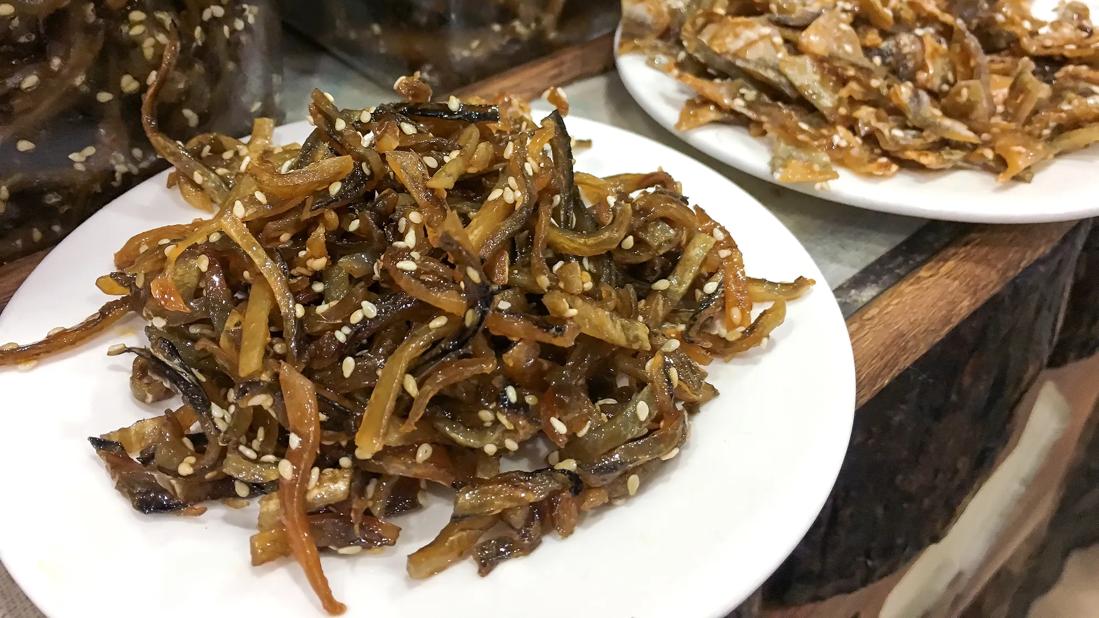This versatile type of seaweed may help support weight loss, bone health and cancer prevention

Image content: This image is available to view online.
View image online (https://assets.clevelandclinic.org/transform/d3e4f22b-37cc-4d6a-bf95-e38958753adc/kelp-salad-1214834402)
Plate of fresh kelp with seasame seeds
It’s leafy, nutritious and tastes yummy in a variety of savory dishes. But it’s not one of the leafy green staples you often see in the salad section. It’s kelp — a sea-loving lettuce lookalike that’s super healthy.
Advertisement
Cleveland Clinic is a non-profit academic medical center. Advertising on our site helps support our mission. We do not endorse non-Cleveland Clinic products or services. Policy
People have eaten kelp for thousands of years, but only recently have researchers explored why it’s so good for you. Registered dietitian Natalie Romito, RD, LD, talks about the benefits of kelp and why might want to give it a try.
Kelp (a type of seaweed) is low in calories and high in nutrients. As it grows, kelp absorbs minerals from the sea, making it one of the most nutrient-rich edible plants. It may help fight cancer and support weight loss and bone health. It’s also one of the best sources of iodine, a nutrient you need for thyroid function.
Research suggests that eating kelp as part of an overall healthy eating plan could offer these benefits:
Kelp is a good source of nutrients you need, while being lower in calories and fat, and providing small amounts of fiber and protein.
A half-cup serving of fresh kelp contains:
Kelp is also a good source of some vitamins and minerals. In terms of your percent daily value (DV), kelp contains:
Weight loss is complicated, and no single food or tactic will work for everyone. But if you’re aiming to shed some pounds, eating kelp might be beneficial.
Advertisement
“Kelp is naturally low in calories and its savory, umami flavor can help you satisfy some cravings,” notes Romito.
Eating kelp — or any other food — can’t guarantee a cancer-free life, but studies show that kelp may help lower your cancer risk.
“Kelp contains natural compounds that could have anticancer effects, though more research is needed,” Romito shares. The research shows that seaweed can kill cancer cells in petri dishes, but more studies done in humans are needed before we know for sure.
Your gut includes millions of microorganisms that help you absorb nutrients and fight illnesses. But you have to feed these tiny organisms so they can do this critical work for you. Enter prebiotics — like those found in kelp.
“Prebiotics are food for your gut’s microbiome,” explains Romito. “Kelp is a good source of prebiotics. Eat a variety of fruits and vegetables, and you’ll reap the benefits of various prebiotics.”
Dairy products like milk and cheese are well-known bone-building foods. But your bones will thank you if you also start incorporating some kelp into your diet. It contains good amounts of vitamin K, which is a key nutrient for bone health.
“Vitamin K is important for proper bone mineralization, which makes your bones stronger,” says Romito. “Research has found that people who don’t get enough vitamin K have a higher risk of breaking a bone.”
Kelp is great for you, but more isn’t always better. Eating large amounts of kelp could cause an iodine overdose. Ask your provider before eating kelp if you have hyperthyroidism (overactive thyroid) or Graves’ disease, or if you’re pregnant.
“Adults should not consume more than 1,100 micrograms (mcg) of iodine daily because it can cause vomiting, stomach burns and other harmful side effects,” warns Romito. “Most people can eat a small amount of kelp without side effects, but don’t consume more than one serving per day.”
She encourages choosing wakame over kombu for its lower iodine content.
Kelp is popular in Japanese cuisine, but it fits into many different cooking styles. You can purchase fresh or dried kelp in many markets, and it adds a savory flavor to dishes.
New to eating kelp? These ideas can get you started:
Advertisement
“Many people enjoy dried kelp to satisfy a salt craving without all the extra sodium of table salt,” shares Romito. “Because it comes in different forms, there are many different ways to use it. It’s an excellent way to add depth to your food’s flavor — and a burst of nutrition, too.”
Advertisement

Sign up for our Health Essentials emails for expert guidance on nutrition, fitness, sleep, skin care and more.
Learn more about our editorial process.
Advertisement
The tropical fruit is a good source of antioxidants and vitamin C
High amounts of cholesterol and saturated fat in red meat may be linked to heart disease
The leaves and pods from this tree are rich in essential nutrients
This starchy root vegetable is a staple in many global cuisines — but it has to be prepared correctly, or it can cause serious concerns
These delicate green sprouts can give you an extra dose of vitamin K and other nutrients — but they’re not safe for everyone
Edamame, lentils and chicken breast are good sources of protein
Eating this root vegetable can help support your eye, heart and brain health
The flavorful herb is full of antioxidants that may help regulate blood sugar
Although it could be used as a moisturizer, this new trend is not recommended
Communicating clear limits helps protect your time, energy and emotional well-being
High cholesterol can be genetic, but testing and treatment can lower your heart disease risk